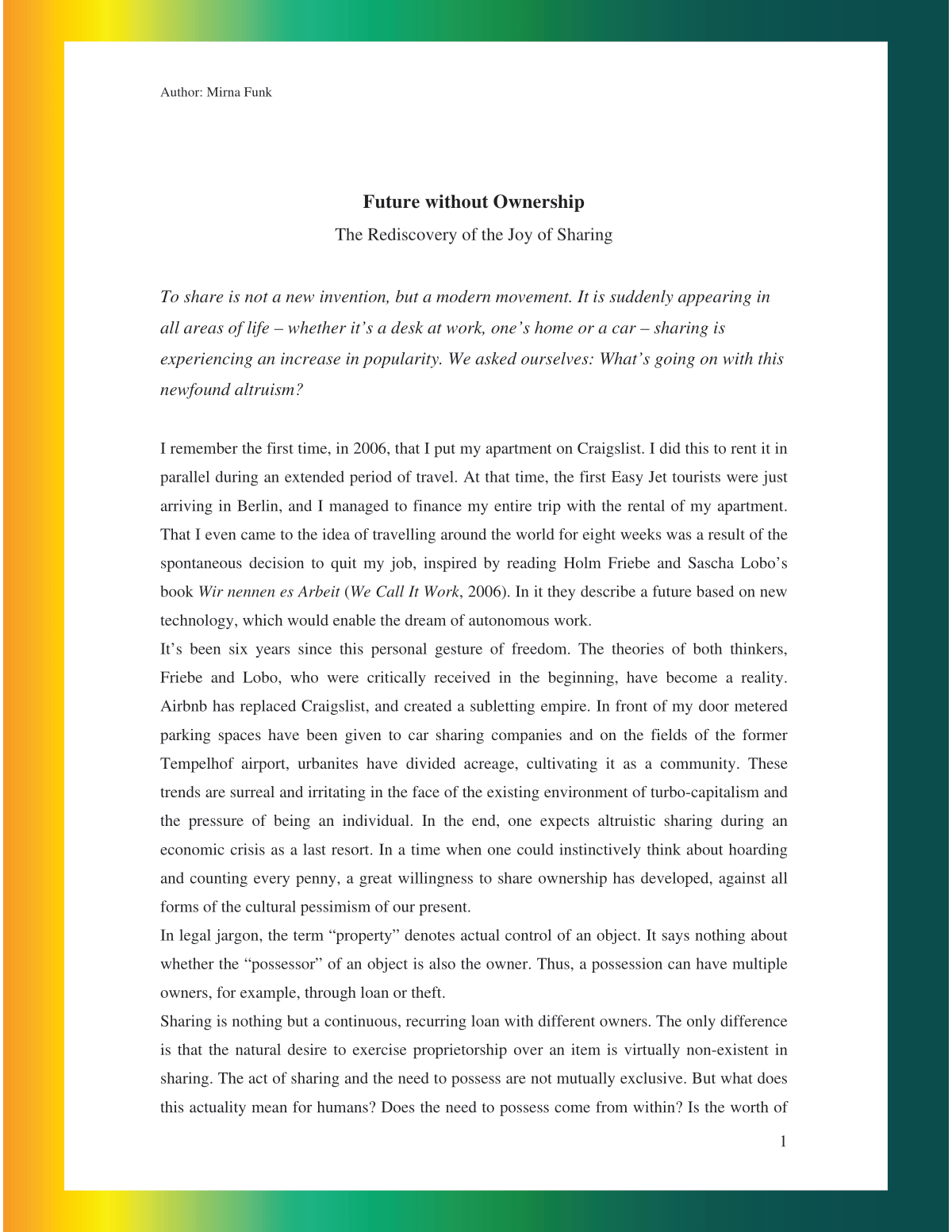ESSAY
Author: Mirna Funk
�
�
1
Future without Ownership
The Rediscovery of the Joy of Sharing
To share is not a new invention, but a modern movement. It is suddenly appearing in
all areas of life – whether it’s a desk at work, one’s home or a car – sharing is
experiencing an increase in popularity. We asked ourselves: What’s going on with this
newfound altruism?
I remember the first time, in 2006, that I put my apartment on Craigslist. I did this to rent it in
parallel during an extended period of travel. At that time, the first Easy Jet tourists were just
arriving in Berlin, and I managed to finance my entire trip with the rental of my apartment.
That I even came to the idea of travelling around the world for eight weeks was a result of the
spontaneous decision to quit my job, inspired by reading Holm Friebe and Sascha Lobo’s
book Wir nennen es Arbeit (We Call It Work, 2006). In it they describe a future based on new
technology, which would enable the dream of autonomous work.
It’s been six years since this personal gesture of freedom. The theories of both thinkers,
Friebe and Lobo, who were critically received in the beginning, have become a reality.
Airbnb has replaced Craigslist, and created a subletting empire. In front of my door metered
parking spaces have been given to car sharing companies and on the fields of the former
Tempelhof airport, urbanites have divided acreage, cultivating it as a community. These
trends are surreal and irritating in the face of the existing environment of turbo-capitalism and
the pressure of being an individual. In the end, one expects altruistic sharing during an
economic crisis as a last resort. In a time when one could instinctively think about hoarding
and counting every penny, a great willingness to share ownership has developed, against all
forms of the cultural pessimism of our present.
In legal jargon, the term “property” denotes actual control of an object. It says nothing about
whether the “possessor” of an object is also the owner. Thus, a possession can have multiple
owners, for example, through loan or theft.
Sharing is nothing but a continuous, recurring loan with different owners. The only difference
is that the natural desire to exercise proprietorship over an item is virtually non-existent in
sharing. The act of sharing and the need to possess are not mutually exclusive. But what does
this actuality mean for humans? Does the need to possess come from within? Is the worth of







